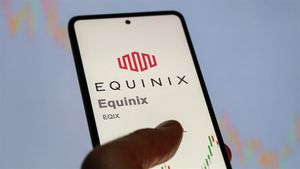 |
London, United Kingdom, Oct 31, 2025, In a market era increasingly dominated by algorithms and short-term speculation, the fundamentals still matter. For Ryan Carter, Senior Fundamental Analyst at BrentMarkets.com, true investing discipline lies in understanding the underlying story behind the numbers, not just reacting to them.
Carter describes 2025 as a year when the importance of fundamentals has quietly reasserted itself. After several years of liquidity rallies, tightening monetary policy and slowing global growth have created an environment where earnings quality and balance sheet strength are once again the decisive factors. Investors, he believes, are rediscovering the value of patience.
Over the past decade, markets often rewarded growth at any cost. But as the cost of capital rises, that approach is starting to break down. Carter and his team at Brent Markets have been tracking a structural shift. Investors are moving away from speculative growth and toward sustainable profitability.
He notes that in 2025, margin resilience and cash flow generation have become the new benchmarks for success. Companies that can fund operations internally, reduce leverage, and still return value to shareholders are outperforming their peers. This rotation toward fundamentals isn’t a short-term trend, instead it represents a return to the foundations of value investing.
Brent Markets’ internal models now give greater weight to balance sheet integrity, earnings consistency, and capital efficiency. Carter emphasizes that these elements form the core of long-term resilience and attributes that algorithmic trading can’t easily replicate.
Sector Performance and Valuation Trends
Across sectors, energy and industrial firms have continued to post steady earnings, while consumer and discretionary names show signs of fatigue. Technology remains the wild card still dominant but increasingly reliant on maintaining high growth expectations. Carter’s analysis shows that valuations in certain tech subsectors have stretched well above their long-term averages, leaving little room for disappointment.
Meanwhile, financials and materials are showing renewed strength as yield curves stabilize and infrastructure spending continues to rise. These trends, Carter believes, are early signals of a cyclical shift away from speculative momentum and back toward tangible assets and productive capital.
He has also pointed out the growing divergence between headline growth rates and actual profitability. Many firms are reporting higher revenue, but with shrinking operating margins. The discrepancy, he suggests, is a reminder that growth without efficiency is unsustainable in a tightening cycle.
The global macro backdrop continues to shape how investors interpret fundamentals. Slower inflation has improved sentiment, but policy uncertainty remains high. With central banks treading cautiously, Carter sees selective opportunity rather than broad expansion.
Brent Markets’ latest outlook highlights markets like Japan and India as undervalued relative to long-term earnings potential, while certain U.S. sectors appear overheated. The firm’s fundamental screens indicate that global equities are entering a more discriminating phase, one where stock picking may outperform passive exposure for the first time in several years.
The Rise of Quant-Fundamental Integration
While fundamental analysis remains rooted in human judgment, Brent Markets is blending it with data science to refine its accuracy. Carter’s team works closely with the firm’s quantitative division to merge financial modeling with machine learning. The result is a hybrid approach that allows faster valuation adjustments while preserving human interpretation.
He believes this integration marks the next evolution of fundamental research. Data tools can process earnings revisions, market sentiment, and macro variables in real time, but analysts still need to interpret those signals within context. The numbers, as Carter often explains, only tell half the story and the rest is understanding management quality, corporate behavior, and the forces driving decisions behind the scenes.
Looking ahead, Brent Markets expects the next investment cycle to reward firms that demonstrate operational discipline and transparent governance. Carter’s outlook emphasizes that markets are transitioning from narrative speculation to earnings validation.
For investors, that means separating hype from substance identifying businesses with pricing power, durable demand, and a clear path to cash generation. The age of easy liquidity may be over, but for those who understand the fundamentals, opportunity still thrives beneath the surface.
In an era defined by automation and noise, Ryan Carter’s approach serves as a reminder that market value ultimately rests on one timeless truth: real numbers, not narratives, drive lasting returns.
Media Contact:
Lizzie Rowland
lizzierowland@brentmarkets.com
Disclaimer: This article is purely informational and doesn't offer trading or financial advice. Its content is not intended to be investment advice. We do not guarantee the validity of the information, especially when it pertains to third-party references or hyperlinks.
Copyright (c) 2025 TheNewswire - All rights reserved.




